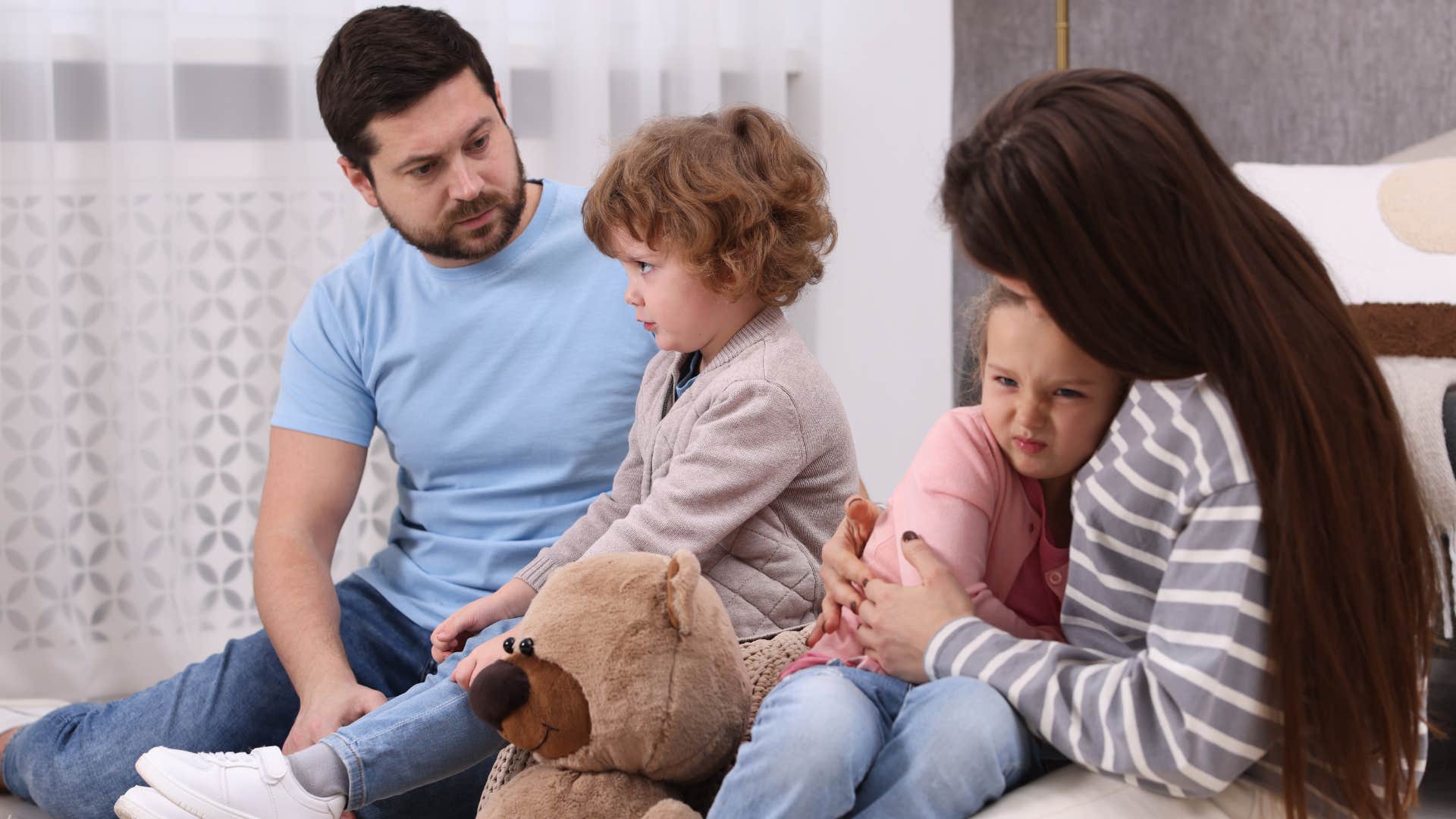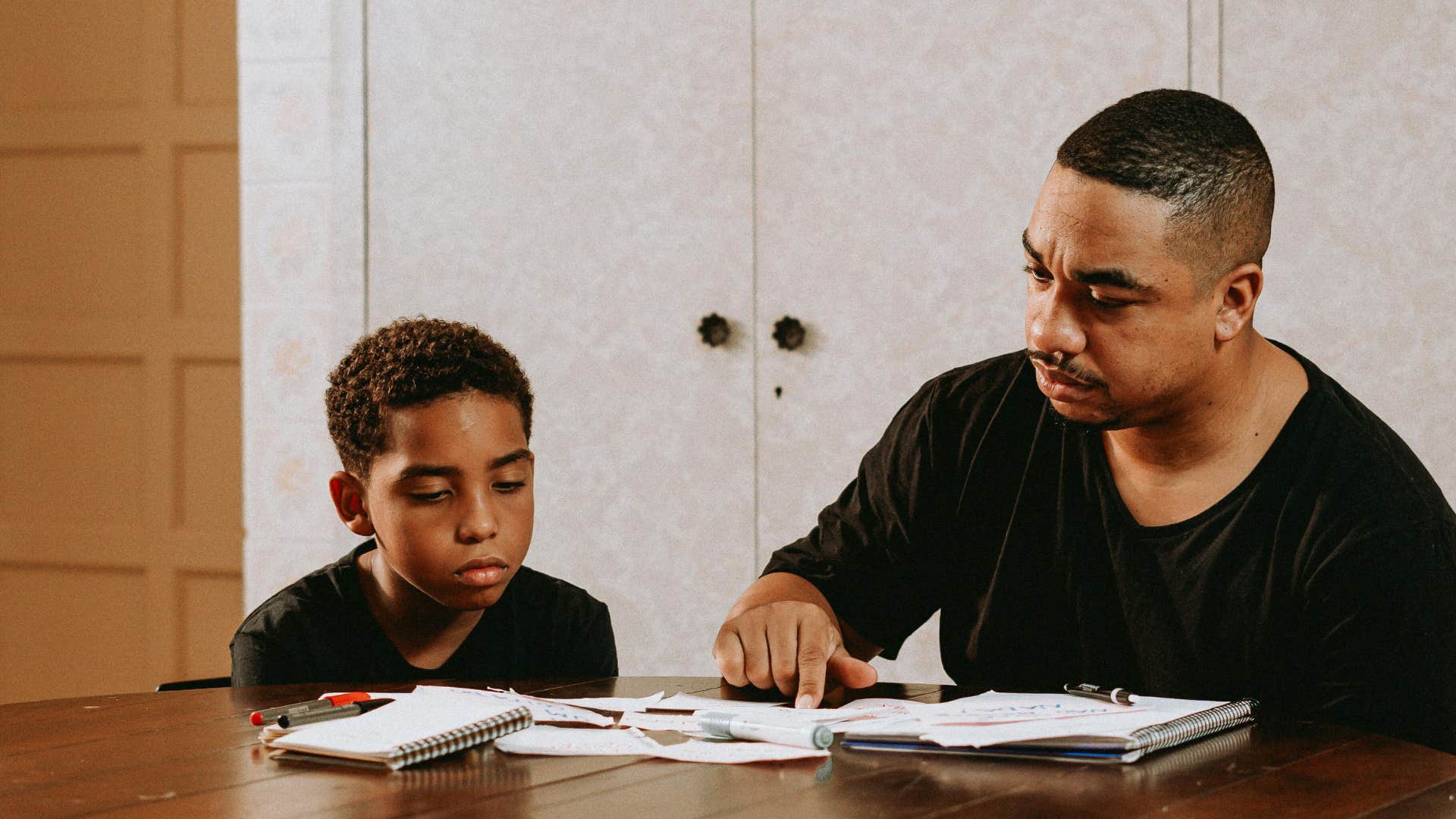11 Phrases Parents Use That Quietly Erode A Child’s Confidence
Using phrases like these with your children may be unintentionally harming their self-esteem.
 fasphotographic / Shutterstock
fasphotographic / Shutterstock Children absorb more from their parents’ words than most adults realize. Even phrases that sound harmless—or that parents say out of habit—can leave lasting impressions on how a child views themselves. While parents often mean no harm, repeated exposure to certain statements plants seeds of self-doubt that may follow kids well into adulthood. Confidence isn’t only built through praise; it’s also eroded through the subtle ways children learn their feelings, efforts, or identities aren’t quite enough.
These phrases rarely lead to blatant rebellion or breakdowns in the moment. Instead, they quietly chip away at a child’s sense of self-worth until insecurity becomes the default. If you’ve ever wondered why some adults struggle to trust themselves despite being capable, the roots often lie in language that shaped their early years.
These are 11 phrases parents use that quietly erode a child’s confidence
1. 'Why can’t you ever do anything right?'
 Juanmonino from Getty Images Signature via Canva
Juanmonino from Getty Images Signature via Canva
This sweeping statement turns a single mistake into a judgment of the child’s entire character. Instead of learning that mistakes are typical, kids internalize the idea that they’re inherently flawed.
Research shows that global criticism predicts lower self-esteem in adolescence. Confidence thrives on encouragement, not condemnation.
2. 'You’re too young to understand'
 laflor from Getty Images Signature via Canva
laflor from Getty Images Signature via Canva
Children pick up far more than adults assume. Dismissing them with this phrase sends the message that their curiosity isn’t valued. Over time, it discourages them from asking questions at all.
Studies in child development note that kids who feel dismissed are less likely to seek guidance, which undermines their self-confidence in their ability to learn.
3. 'That’s not important'
 photosvit from Getty Images via Canva
photosvit from Getty Images via Canva
When kids share something meaningful, whether a story, a drawing, or a worry, this phrase signals that their perspective doesn’t matter. Parents may not intend harm, but the child learns that what excites or troubles them isn’t worth attention.
Over time, this erodes self-worth by teaching them that their inner world is trivial.
4. 'You’ll just fail if you try that'
 pixelheadphoto from Getty Images via Canva
pixelheadphoto from Getty Images via Canva
Predicting failure robs children of the chance to discover resilience. Carol Dweck’s research on growth mindset shows kids build confidence when they’re allowed to try, stumble, and improve.
This phrase shuts the process down before it starts. Instead of experimenting, they retreat, believing failure is inevitable.
5. 'I don’t have time for this right now'
 Africa images via Canva
Africa images via Canva
Every parent gets busy, but when children hear this regularly, they internalize the belief that their needs and voices don’t matter. While adults may forget the moment quickly, kids carry the memory of being brushed aside.
Over time, this reduces their confidence in speaking up, as they fear they’re always an inconvenience.
6. 'Why can’t you be more like other kids?'
 Africa images via Canva
Africa images via Canva
Comparisons, whether to classmates, neighbors, or friends, teach children that their individuality is a flaw. Instead of celebrating who they are, they learn they should copy others to be worthy.
Research shows children who experience frequent parental comparisons often report lower self-esteem and higher anxiety.
7. 'Stop making a big deal out of nothing'
 JackF from Getty Images via Canva
JackF from Getty Images via Canva
Minimizing a child’s struggles teaches them to distrust their own feelings. Even if the issue seems small to adults, it’s real to the child.
Over time, repeated invalidation erodes self-confidence by reinforcing the idea that their perspective is exaggerated or unreliable.
8. 'Don’t ask so many questions'
 Monstera Production from Pexels via Canva
Monstera Production from Pexels via Canva
Curiosity is the foundation of learning and problem-solving. When kids hear this, they learn that seeking knowledge is irritating rather than valuable.
Studies highlight that children who are encouraged to question develop stronger confidence in their thinking abilities. Shutting down questions not only diminishes curiosity but also confidence.
9. 'You’ll never get anywhere with that attitude'
 Imagesbybarbara from Getty Images Signature via Canva
Imagesbybarbara from Getty Images Signature via Canva
Even when meant as motivation, this phrase makes children feel their personality itself is defective. Rather than adjusting behavior, they may begin to see themselves as inherently “bad.”
This global labeling erodes the confidence necessary for growth. Positive direction works far better than broad condemnation.
10. 'That’s not good enough'
 SAULO LEITE from Pexels via Canva
SAULO LEITE from Pexels via Canva
For children, hearing this repeatedly instills a perfectionist mindset and a fear of failure. It sets a bar that feels impossible to reach.
Research shows parental pressure for perfection is linked to higher anxiety and lower self-esteem. Instead of learning to strive and improve, kids learn that whatever they do will fall short.
11. 'I wish you were more like me when I was your age'
 Jupiterimages from Photo Images via Canva
Jupiterimages from Photo Images via Canva
This phrase loads children with the weight of comparison across generations. It undermines their confidence by suggesting they don’t measure up to their own parent.
Kids who hear this grow up feeling inadequate, believing they can’t live up to expectations, no matter how hard they try. It plants insecurity instead of resilience.
Sloane Bradshaw is a writer and essayist who frequently contributes to YourTango.

